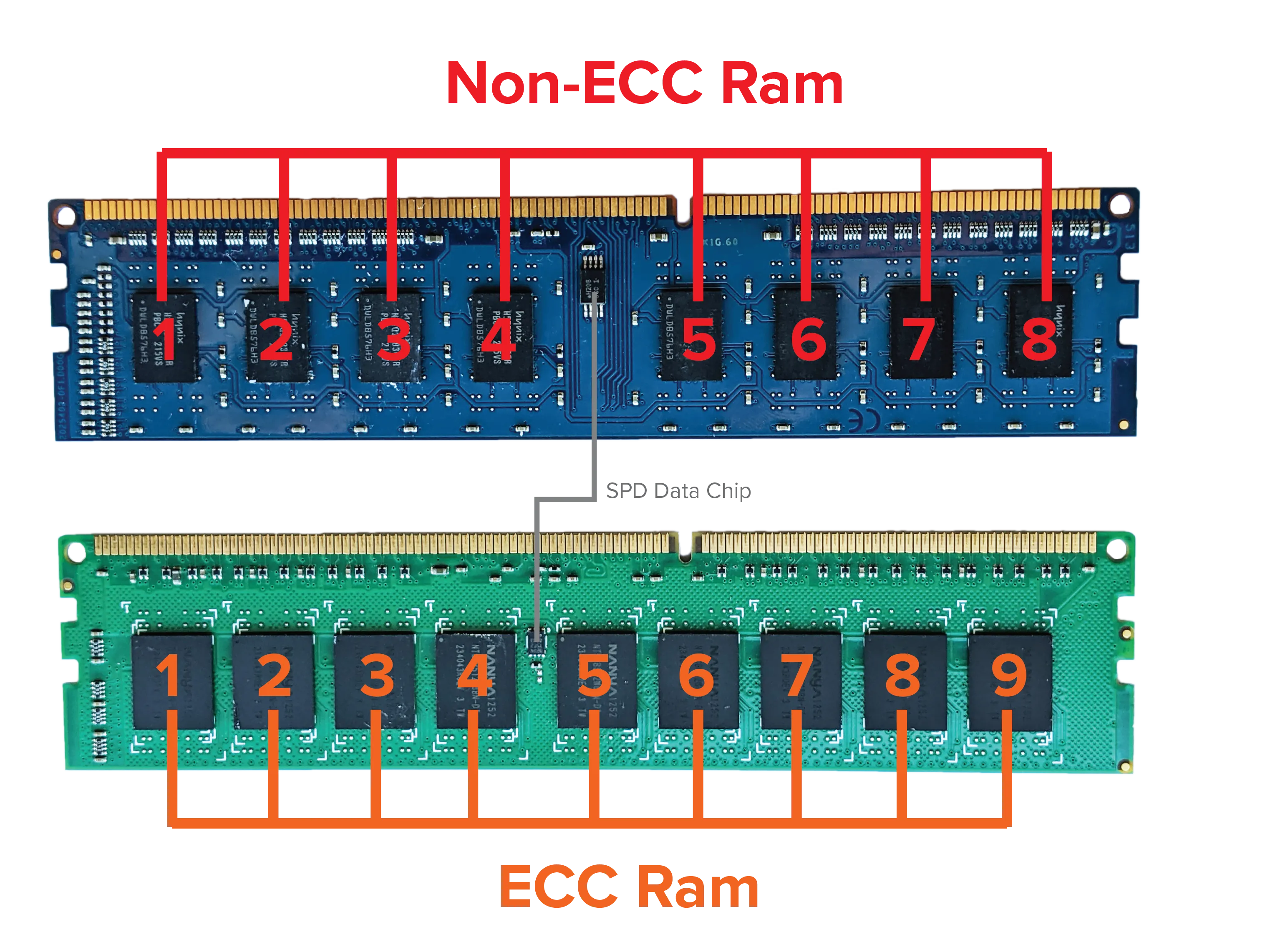Why It’s a Big Deal and Why Gamers Don’t Care
Introduction
Ever had your PC crash randomly and thought, “What the heck just happened?” Well, sometimes, it’s a tiny, invisible gremlin flipping a single bit in your RAM. That’s where ECC (Error-Correcting Code) memory comes in. It’s like your RAM but with built-in superpowers to detect and fix errors before they mess up your system. If you’re a server admin, data scientist, or just someone who hates unexplained crashes, you probably already know ECC memory is a big deal. But if you’re a gamer or casual user? Eh, not so much. Let’s break it down.
Chapter 1: What Even Is ECC Memory?
ECC memory is RAM that comes with built-in error detection and correction. Normal RAM just stores data and hopes for the best. ECC RAM actually checks itself for mistakes and fixes minor ones before they cause problems.
Key Features of ECC Memory:
-
Detects and corrects single-bit errors
-
Detects multi-bit errors (but can’t fix them)
-
Requires motherboard and CPU support
-
Mostly used in servers, workstations, and scientific computing
Chapter 2: How ECC Memory Works (Without Too Much Math)
Alright, so ECC memory is basically like a grammar-checker for your RAM. Here’s the simple version:
-
Data Encoding: When your system writes data to RAM, it generates an extra chunk of code that can be used to detect and fix errors.
-
Error Detection: When reading the data, the system checks that extra code to see if anything got messed up.
-
Error Correction: If a single-bit error is found, ECC memory just corrects it like nothing happened. If there’s a bigger issue, your system might throw an error or crash instead of silently corrupting data.
For mission-critical systems, this is a lifesaver. For your gaming rig? Not so much.
Chapter 3: ECC vs. Non-ECC Memory – Do You Even Need It?
Let’s compare ECC and non-ECC memory side by side:
| Feature | ECC Memory | Non-ECC Memory |
|---|---|---|
| Error Detection | Yes | No |
| Error Correction | Yes (single-bit errors) | |
| Performance Impact | Slight slowdown due to extra processing | Slightly faster |
| Cost | More expensive | Cheaper |
| Use Case | Servers, workstations, data centers | Gaming, general consumer PCs |
TL;DR: If you need reliability over everything, go ECC. If you just want max FPS in Call of Duty, stick to regular RAM.
Chapter 4: Why ECC Memory is a Must-Have for Servers
So why does ECC memory dominate in the server world? Because no one wants a tiny RAM error taking down an entire company’s database. Here’s why ECC memory is essential in high-end computing:
-
Data Integrity
One flipped bit could corrupt a database, break an AI model, or ruin critical financial data. ECC prevents that.
-
System Stability
Crashes due to RAM errors? Not in a server farm running ECC.
-
Uptime and Reliability
Servers are expected to run 24/7. ECC helps prevent random failures that could cost thousands in downtime.
-
Security Benefits
Memory corruption isn’t just an inconvenience—sometimes, it’s an exploit. ECC helps mitigate certain attack vectors by keeping memory errors in check.
Chapter 5: Why Consumer PCs Don’t Bother with ECC
If ECC is so great, why don’t gaming PCs and regular desktops use it? Here’s why:
-
It’s Expensive
ECC RAM costs more, and you need a compatible motherboard and CPU. That’s extra $$$ for a feature most users don’t need.
-
Slight Performance Penalty
ECC has to do extra work to check and correct errors, which can slightly impact speed. In gaming and high-performance consumer applications, every bit of speed counts.
-
Most Consumer Apps Don’t Need It
Your Netflix stream won’t die because of a single-bit memory error. Neither will your game saves or Photoshop edits.
-
Hardware Compatibility Issues
Many consumer CPUs and motherboards just don’t support ECC. Even if you wanted it, you’d have to build a system specifically for it.
Conclusion
ECC memory is a game-changer for enterprise, science, and mission-critical applications. If you’re running a server, a financial system, or crunching big data, you absolutely need ECC. But if you’re just gaming, browsing Reddit, or editing videos? Save your money, non-ECC memory is just fine.

